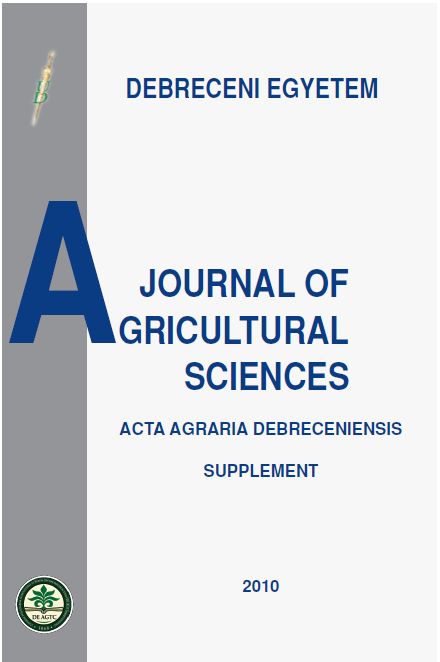Public opinion on the settlements’ environment and the use of renewable energy sources in the Micro-region of Gyöngyös
Authors
View
Keywords
License

This work is licensed under a Creative Commons Attribution 4.0 International License.
How To Cite
Abstract
This paper intends to give an overview on some results of our studies carried out on the public opinion of the above aspects (settlements’
comfort level and the use of renewable energy sources) directly or indirectly linked to the topic of climate change and possible adaptations.
These studies were carried out by applying questionnaire survey in the (altogether 25) settlements of the Gyöngyös Micro-region.
Knowledge on general human perceptions related to climate change and its impacts is considered to be important as it should advance the
elaboration of adaptation and applied scientific works. They are highly required as rural areas, due to their closer relationship (dependence)
to the physical environment, are more susceptible to changes resultant from the climate change with their possibilities to adaptation also
being impeded.
The beauty of environment plays an important role in the settlements studied within the micro-region with more than two third of pollees
opting the environment as a factor they most proud of, especially among those residing in the villages for more than 10 years. It can be
presumed that any change in this environment would greatly impact their everyday life and emotional relationship to their home villages. The
overall picture after analysing the public opinion on the use of renewable energy source (as possible way of adaptation to the impacts of
climate change) is rather controversial. Even basic knowledge and information are limited regarding the relevant technologies calling
attention to the importance of raising environmental awareness and providing full information seems to be essential and should be
implemented, through the media and education.

 https://doi.org/10.34101/ACTAAGRAR/I/8414
https://doi.org/10.34101/ACTAAGRAR/I/8414